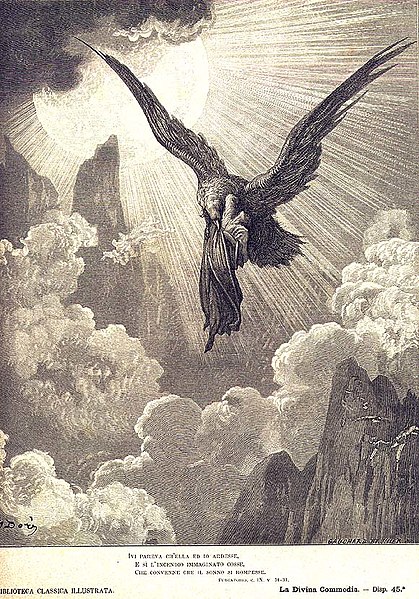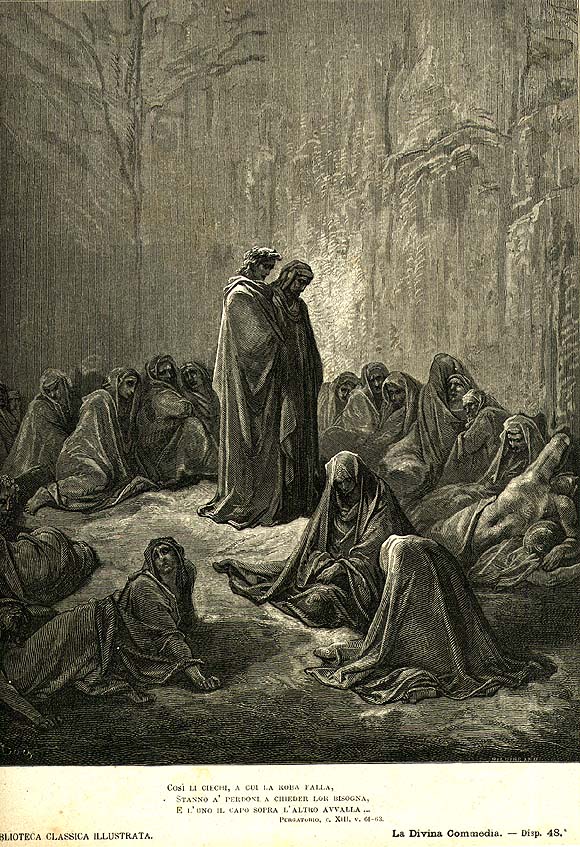The Divine Comedy - Parts 2 & 3: Purgatorio and Paradiso
Previously: Part 1: Inferno
Purgatorio
And of that second kingdom will I singAfter enduring the nine circles of Hell, Dante and Virgil finally make it out of the underworld and back to the surface of the earth. Under a starlit sky, they watch as a boat filled with souls and captained by an angel approaches the foot of Mount Purgatory. Dante continues on his own journey as he follows Virgil up the nine levels of the mountain. Together, in a similar vein to their experiences in Inferno, the two travelers observe the different disciplines which souls must endure before they have been "purified" of their remaining sins and made fit to enter Paradiso.
Wherein the human spirit doth purge itself,
And to ascend to heaven becometh worthy
Some readers find the second two books of The Divine Comedy to be less interesting than the first. I actually found Purgatorio to be much more compelling than Inferno, despite my expectations and the fact I don't personally believe in the doctrine of purgatory. I think this must be for three reasons:
- being glad to have finished Inferno, which was really unpleasant
- the variety and beauty of imagery in Purgatorio: half-celestial, half-earthly
- the element of hope, which is not present in Inferno
Paradiso
After Purgatorio, which was almost enthralling, Paradiso was a great disappointment.Virgil, one of the condemned spirits, had to leave Dante at the end of Purgatorio, as I somewhat anticipated. Now with his beloved Beatrice as his guide, the young poet completes his journey by ascending the nine levels of Heaven. Along the way, he meets Biblical and Christian figures such as Solomon, St. Peter, St. Thomas Aquinas, and the Venerable Bede. The higher he climbs, the more intense become the light and worship, culminating in the dazzling pinnacle of Paradiso, where God is exalted above all.
I'm afraid Dante's imagining of Heaven is, well, boring. Unlike the other two places of existence, there is little scenic variety here, and the illustrator, Doré, seems to have been of the same impression - there are far fewer illustrations in this book than in the other two. Also, Dante makes what I think is a huge writer's mistake in inserting his real-life love interest as one of the main characters, then proceeding to portray himself as staring at her adoringly through much of the story, while she grows more and more beautiful. It's hard to take it seriously.






Comments